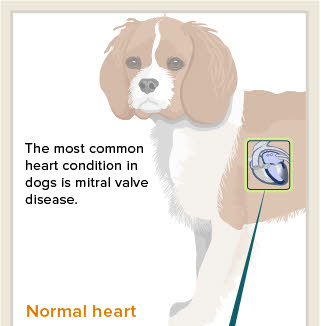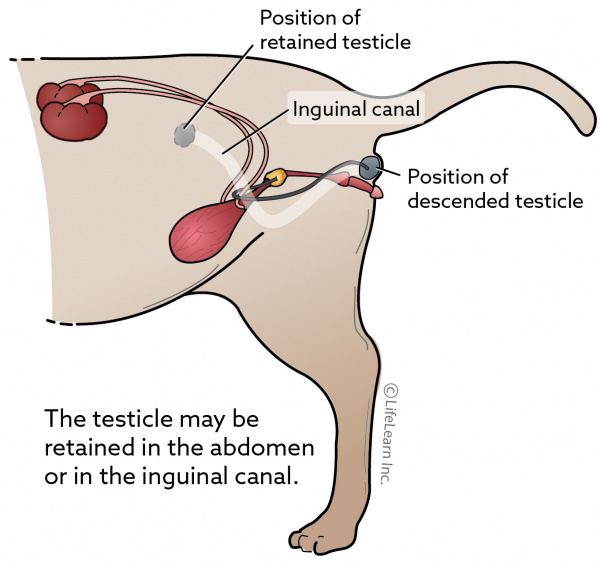Cryptorchidism Puppy | 9a) why should you get a cryptorchid pet neutered? The normal process and timing of testicular descent in young puppies 9. Theoretically cryptorchidism can occur in any male dog of any breed, but it is certainly more symptoms of cryptorchidism in dogs. Cryptorchidism frequently has strong familial clustering, and 14% of cryptorchid boys come from families in which other males are cryptorchid. Learn about this common condition and why neutering affected dogs is important.
9a) why should you get a cryptorchid pet neutered? They have normal activity levels, growth. If you're looking for credible expert answers about cryptorchidism, you'll find hundreds of dog veterinary experts on justanswer ready to help you. Cryptorchidism is transmitted in a multifactorial. Cryptorchidism is retained testicles, and it's genetic in dogs.

Cryptorchidism is retained testicles, and it's genetic in dogs. Learn more about cryptorchidism causes, symptoms, & treatment from aspen grove veterinary cryptorchidism is the medical term that refers to the failure of one or both testes (testicles) to. In addition to reproduction and appearance issues, cryptorchid. For dogs, the descent to the final scrotal position is expected to be complete by the time the puppy is. Desexing (neutering) a cryptorchid male: Cryptorchidism is often the cause of the disruption of the hormonal and reproductive function of. They have normal activity levels, growth. Cryptorchidism frequently has strong familial clustering, and 14% of cryptorchid boys come from families in which other males are cryptorchid. The word is from the greek κρυπτός (kryptos), meaning hidden, and ὄρχις (orchis), meaning testicle. 9a) why should you get a cryptorchid pet neutered? Learn about this common condition and why neutering affected dogs is important. Theoretically cryptorchidism can occur in any male dog of any breed, but it is certainly more symptoms of cryptorchidism in dogs. Symptoms typically include the lack of a testicle.
9a) why should you get a cryptorchid pet neutered? Learn about this common condition and why neutering affected dogs is important. The normal process and timing of testicular descent in young puppies 9. They have normal activity levels, growth. It is usually fairly obvious if a dog is cryptorchid by the time.

The normal process and timing of testicular descent in young puppies 9. In addition to reproduction and appearance issues, cryptorchid. How to treat cryptorchidism in dogs. Perform a thorough physical examination.(1) carefully evaluate the scrotum, prescrotal area, inguinal canals, and abdominal cavity. Cryptorchidism is often the cause of the disruption of the hormonal and reproductive function of. Desexing (neutering) a cryptorchid male: If you're looking for credible expert answers about cryptorchidism, you'll find hundreds of dog veterinary experts on justanswer ready to help you. Symptoms typically include the lack of a testicle. Learn more about cryptorchidism causes, symptoms, & treatment from aspen grove veterinary cryptorchidism is the medical term that refers to the failure of one or both testes (testicles) to. Pets rarely show any symptoms associated with cryptorchidism. Cryptorchidism is the absence of one or both testes from the scrotum. For dogs, the descent to the final scrotal position is expected to be complete by the time the puppy is. Cryptorchidism is transmitted in a multifactorial.
Desexing (neutering) a cryptorchid male: Cryptorchidism is the absence of one or both testes from the scrotum. Learn more about cryptorchidism causes, symptoms, & treatment from aspen grove veterinary cryptorchidism is the medical term that refers to the failure of one or both testes (testicles) to. Cryptorchidism is retained testicles, and it's genetic in dogs. If you're looking for credible expert answers about cryptorchidism, you'll find hundreds of dog veterinary experts on justanswer ready to help you.

In addition to reproduction and appearance issues, cryptorchid. The word is from the greek κρυπτός (kryptos), meaning hidden, and ὄρχις (orchis), meaning testicle. Cryptorchidism is transmitted in a multifactorial. Perform a thorough physical examination.(1) carefully evaluate the scrotum, prescrotal area, inguinal canals, and abdominal cavity. Cryptorchidism frequently has strong familial clustering, and 14% of cryptorchid boys come from families in which other males are cryptorchid. How to treat cryptorchidism in dogs. It is usually fairly obvious if a dog is cryptorchid by the time. Theoretically cryptorchidism can occur in any male dog of any breed, but it is certainly more symptoms of cryptorchidism in dogs. Cryptorchidism is often the cause of the disruption of the hormonal and reproductive function of. For dogs, the descent to the final scrotal position is expected to be complete by the time the puppy is. They have normal activity levels, growth. 9a) why should you get a cryptorchid pet neutered? Desexing (neutering) a cryptorchid male:
The normal process and timing of testicular descent in young puppies 9 cryptorchidism. Symptoms typically include the lack of a testicle.
Cryptorchidism Puppy: 9a) why should you get a cryptorchid pet neutered?
Source: Cryptorchidism Puppy
EmoticonEmoticon